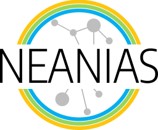The COVID-19 pandemic has had a tremendous impact on the industry globally. Part of that impact has been the cancellation and postponement of events and trade shows, which The Global Association of Exhibition Industry estimates at more than € 15 billion in the global economy by 2020.
Some of the biggest trade events cancelled so far include:
- SXSW in Austin, Texas
- CinemaCon in Las Vegas, Nevada
- Geneva Motor Show in Geneva, Switzerland
- E3 Video Game Convention in Los Angeles, California
- Mobile World Congress, Barcelona
In this context, many companies have decided that a more efficient strategy is to physically attend fewer events and instead shift most of their marketing budgets to less expensive events. Three are the alternatives to the most successful trade shows:
- Webinars: These are online presentations that allow companies to invite journalists, consumers, and industry experts to discuss and present their business news.
- Own events: Similar to webinars but more comprehensive, vendors can also host their own online product launch and announcement events targeting a wider global audience.
- Virtual fairs: its objective is to transfer exhibitors from physical fairs to an online support, avoiding travel and physical contact between exhibitors and visitors. These events provide the exposure of an entire sector to the entire professional and amateur public, while saving travel, accommodation, installation and dismantling expenses.
This new trend of on-line fairs and events has become an opportunity to launch "Virtual Exhibition" solutions and platforms, which bring large-scale offline events to the Internet. Some success stories are:
- EventXtra
- Hopin
- Run The World
- Eventbrite
Next blog we willl discuss on the designing of online events.
